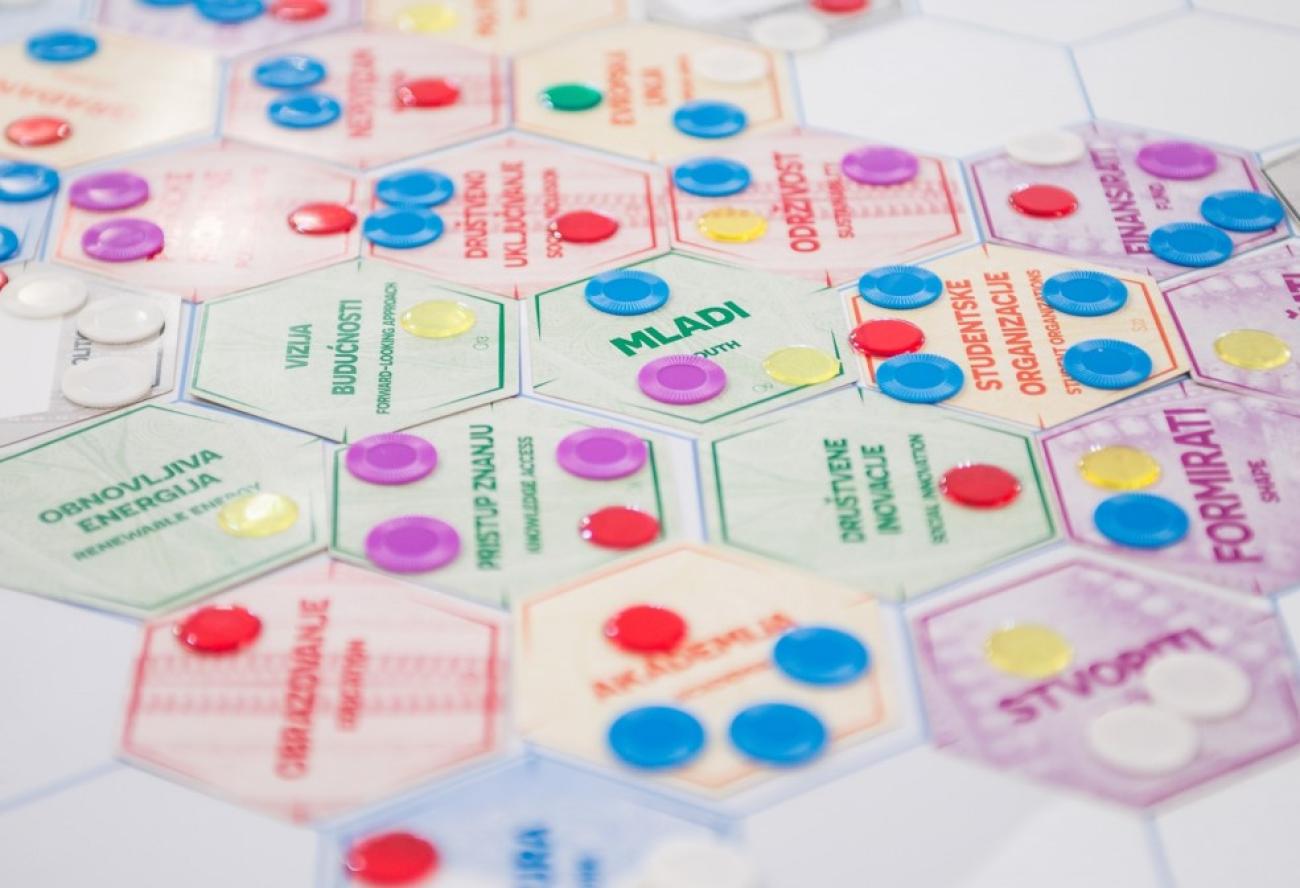Preparing for the future(s): Foresight, citizens’ insights and serious games

Because of the rapid pace of changes, development organizations are, in fact, asked to be more resilient and more agile so as to navigate uncertainties.
OpEd by Ana Dautovic, Marija Novkovic, originally published on UNDG’s Silo Fighters
Most people feel that the future is linear: if you perform well in school, you’ll get a job; if you work hard, you’ll be promoted; if you save, you’ll be able to live well through your retirement age, et cetera, et cetera. There is a great level of comfort in the IF → THEN causal link because there are fewer variables, fewer elements that could go off the rails. There is more certainty and we feel more in control.
However, through Futures Studies there are alternative futures (possible, probable, plausible, and preferred); consequently, there are multiple development pathways.
Professor Jim Dator, the pioneer of modern futures studies once said that “the future cannot be predicted because the future does not exist.”
Indeed, the last few years brought forward unfathomable changes with deep, far-reaching ramifications. The global financial crisis, earthquakes, tsunamis, volcanic eruptions, nuclear power plant disasters, the rise of extremism, and the ongoing global refugee crisis, to name just a few. The linear path from A (The Past) to B (The Now) to C (The Future) in these occurrences has been more challenging, if not impossible, to pin down.
Because of the rapid pace of changes, development organizations are, in fact, asked to be more resilient and more agile so as to navigate uncertainties.
We in the UN System in Montenegro were mindful of the fact that the realities of the present day and age require innovation at the highest point of impact – the five-year strategic plan of support to the country. We created a strategy that would infuse our long-term planning with foresight and civic engagement. It consists of three steps.
1. Serious games for empowering new voices in strategic planning
Working in Montenegro over the last few years has brought us closer to the country’s rising new voices — a generation witnessing and creating unprecedented changes to the social fabric. Working across think-thanks, academia, statistical office and NGOs, they are disruptive innovators, digital champions and active youth.
We engaged them through collaborative workshops, where they learned about foresight, and most importantly, created alternative futures for Montenegro.
We are particularly proud to have used a serious game that was custom-made for Montenegro by John A. Sweeney, another member of the Hawaii Research Center for Futures Studies and deputy director of the Center for Postnormal Policy and Futures Studies. The game, beautifully designed to showcase elements of the national costume, served as an enhanced survey tool, prompting the players to ponder on values, challenges, opportunities, stakeholders and actions, which will likely shape the future of the country.
2. Digital engagement fit for the 21st century
Civic engagement, particularly through social innovation and online platforms, has been high on UN Montenegro’s agenda. So far, we’ve engaged thousands of Montenegrins and garnered their insights through the massive post-2015 national consultations (12,000 people), the Youth Employment Solutions platform (10,700 people), and uncovered social change heroes through the Open Ideas and Be Responsible campaigns (over 7000 civic reports of informal economy leading to generating public revenue in excess of 1 million EUR).
However, public consultations on the next five-year strategic plan of collaboration between the UN and the Government of Montenegro were the new peak we had to conquer. We turned to digital technologies, and moved our serious game into the online space, hoping for a wider outreach.
We are both anxious and excited about receiving citizens’ insights into the future!
3. Innovating at the point of strategic prioritization
While this summer seemed like one giant roller-coaster journey, we do have few more rides ahead of us! Moving away from traditional planning processes, we are bringing in foresight into strategic planning with the Government.
Applying foresight should allow us to unlock a much broader scope of analysis. We plan to usebackcasting, i.e. a forward looking planning process where we start from future(s) scenarios to define programmes that will help make them a reality.
This strategic meeting with the government will be as collaborative and hands-on as possible, to inspire everyone to engage more than they would by filling out a survey or validating pre-defined strategic priorities. It will enable considering new horizons of the five-year plan, the integrated nature of sustainable development and human rights, and creating a more resilient society.
Thinking critically about preferred futures will lead the way towards creating a more fluid and agile structure so that when challenges arise, we can navigate them. This approach will ultimately promote proactive versus reactive attitudes.

















